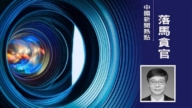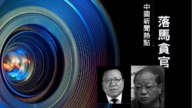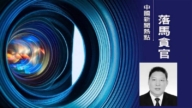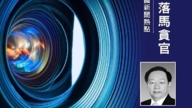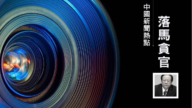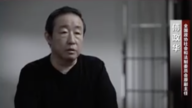【新唐人2014年09月11日讯】中共党魁习近平上台以来提出的“宪政梦”,在党媒上总是时隐时现,引发网路热议。观察家们认为,是中共内斗中,政治板块的移位、挤压、撞击的结果,不过也有专家指出,习近平的“依宪治国”、“依宪执政”,只不过是强调中共在宪法中规定的,中共的执政地位。而如果习近平真的想为要百姓做事,就会像刘少奇一样被中共体制排斥。
9月5号,中共党魁习近平在中共人大制度60周年大会上,再次强调“依宪治国”、“依宪执政”。当天,《新华社》发布的习近平讲话原文,有这两个口号。但是在《新华社》发的大会新闻通稿,和《人民日报》头版头条刊登的大会新闻中,却找不到。
日前,香港大学新闻及传媒研究中心,中国传媒研究计划主任钱刚,把习近平“依宪治国”、“依宪执政”的口号,在党媒上出现的频率梳理了出来。
前年12月初习近平首次提出:“依法治国首先是依宪治国,依法执政关键是依宪执政”。随后,在《人民日报》上使用“依宪治国”或“依宪执政”的文章有6条。但进入去年,这两句话开始降温。去年1月,《人民日报》上没有了这两个词语,同时,《南方周末》的新年献词《中国梦 宪政梦》被强令删改。在以后的日子里,“依宪治国”“依宪执政”伴随着““七不讲”、反“宪政”的高潮,时隐时现。在去年末和今年初,这两个口号再现形3次后,完全消失。
查看《人民日报》的报导, 从去年12月到今年8月“依宪执政”消失了9个月﹔从今年3月到8月“依宪治国”消失了6个月。
但也有宪政学者认为,习近平的“依宪治国”和“依宪执政”是指目前宪法序言中写的:“中国共产党是中国特色社会主义事业的领导核心”。按照党的解释,这句话规定了中共所谓的执政地位。
《亚洲新闻周刊》总监黄金秋:“其实对共产党现在的宪法来讲,它也不是一个真正的宪法,宪法规定共产党领导一切。你想想看,一个政党能凌驾于其他政党或国家组织之上,对于宪法其实这是一种非法的宪法。因为正常的宪法,就是所有的党派都应该是公平、平等竞争的这种关系。”
大陆历史学者王思想:“他们说的话很多都是自相矛盾的,有些话他们自己都不信,他们只不过说出来而已。确实有些话可能会被主管新闻的某些人给刻意的隐瞒,但是这个比例很少。他们虽然内斗,狗咬狗,但是在他们利益一致的时候,他们还是团结起来一起对付这些老百姓的,千万不要有幻想。”
香港大学新闻及传媒研究中心,中国传媒研究计划主任钱刚也指出,社会上也的确有许多善良的朋友,对改革抱有期许,每每从一些新的口号中读出希望,忽略了新瓶装的可能还是旧酒。
在习近平9月5号的讲话中,他还提到了“维护社会公平正义,尊重和保障人权,实现国家各项工作法治化”。不过,《新华社》和《人民日报》的报导,也没有反映出来。
而在今年反腐遇到阻力时,习近平以生死反击的话语,也只能在地方小报上发表。
北京宪政学者陈永苗:“他如果说想做事情,或者是有良知的话,他会自动被这个体制给排斥掉的。”
大纪元社论《九评共产党》指出,在中共的历史上党的领导人都是悲剧收场,党自己却顽强的活着。能生存下来的领导人不是能操纵党的,而是摸透了党的,顺着党的邪劲儿走,能给党加持能量,能帮助党度过危机的。
而习近平本人也曾经受过中共迫害,他15岁时,在文革中,被多次关押审查。《亚洲新闻周刊》总监黄金秋曾经指出,习近平如果真想有所作为,应该利用现在的地位,结束共产党的历史,使中国真正走向民主宪政。
采访编辑/刘惠 后制/陈建铭
Xi Jinping ‘s Dream of Constitutionalism Flickers in Party Media.
The Chinese Communist Party (CCP) leader Xi Jinping ‘s “dream of
constitutionalism" has been a hot topic among Chinese netizens.
The phrase is mentioned by party mouthpieces again and again.
This is regarded by political observers as a result of clashes from
the CCP’s internal struggle.
Experts said, Xi ‘s “rule in accord with constitution " is only to
underline the CCP ‘s “ruling role" according to its constitution.
If Xi really intends to serve for the people, he will be repelled by
the whole CCP regime just as Liu Shaoqi was.
On Sep. 5, Xi Jinping again laid stress on “rule in accord with
constitution" in his speech at the 60th anniversary meeting of
the People ‘s Congress. The same day, the transcript of Xi ‘s
speech published by Xinhua also included that key phrase.
On the other hand, it was not mentioned in Xinhua ‘s news
release or People ‘s Daily headline news about the meeting.
Qian Gang is director of China Media Project Journalism and
Media Studies Centre of Hong Kong University.
Qian recently researched how frequently Xi ‘s “constitutionalism"
comments appeared in reports of party mouthpieces.
In December 2012, Xi for the first time presented the idea saying
“Rule of the law is based on rule in accord with constitution."
Following that, 6 People ‘s Daily articles quoted Xi ‘s words.
However, Xi ‘s comment was cooled down and disappeared
from People ‘s Daily from January 2013.
Southern Weekly ‘s New Year message “Dream of China is the
dream of constitutionalism" was also forcibly removed.
After that, Xi ‘s “rule in accord with constitution" flickered in
media reports as the political situation changed.
After being used 3 times in late 2013 and early 2014, the word
had completely disappeared.
By tracking People ‘s Daily reports, one can find that the phrase
“rule in accord with constitution" disappeared for 9 months from
December 2013 and August 2014. “Governance in accord with
constitution" was gone for 6 months from March to August 2014.
There are comments from constitutional scholars that Xi ‘s words
refer to what is written in the preface of the CCP ‘s constitution;
“The CCP is the core of leadership for the cause of socialism
with Chinese characteristics."
The CCP said this sentence “defines the CCP ‘s ruling role"
in China.
Huang Jinqiu, director of Asian Newsweek: “the CCP ‘s current
constitution is not real as it says the CCP should lead everything.
Think about it, any constitution saying one party is above any
other party or state departments cannot be legitimate.
Any real constitution must require all parties to compete
in a fair manner."
Wang Sixiang, Chinese historical scholar, “many of the CCP ‘s
words are self-contradicting.
Even party leaders don ‘t believe in what they say.
They just say it and that ‘s it.
It is possible that what leaders say is intentionally removed
by propaganda officers, but those are only rare cases.
The CCP has internal struggles, but they always unite to crack
down on ordinary people to protect their common interests.
We should not have any illusive hope toward the CCP."
Qian Gang said there are many in Chinese society who hold
goodwill and expect political reform.
They try to find some hope from new slogans of the party,
but usually ignore that there is nothing new behind them.
In Xi ‘s speech on Sep. 5, he also mentioned, “defend social
fairness and justice";
“Respect and protection of human rights”; and “legalization
of state work".
However, Xinhua and People ‘s Daily also ignored those
words in their reports.
In 2014, Xi had had to show his attitude of “fighting corruption
with his life" in the local newspaper.
Chen Yongmiao, Beijing constitutional scholar, “if Xi wants to do
something with his conscience, he will be repelled by the regime."
The Epoch Time ‘s Nine Commentaries on the Communist Party
said:"Many party leaders ended their political life in tragedy,
yet the CCP has survived";
“The CCP leaders who survived their positions were not those
who could influence the Party, but those who could comprehend
the Party ‘s evil intentions and follow them";
“They strengthened the CCP ‘s ability to survive while in crisis,
and gave themselves entirely to the Party."
Xi himself had also suffered from the CCP ‘s persecution. He was
detained many times during the Cultural Revolution at 15.
Huang Jinqiu commented that, If Xi really wants to make some
achievements, he should use his role to end the CCP ‘s rule and
push China to real democracy and constitutuionalism.
Interview & Edit/LiuHui Post-Production/Chen Jianming


